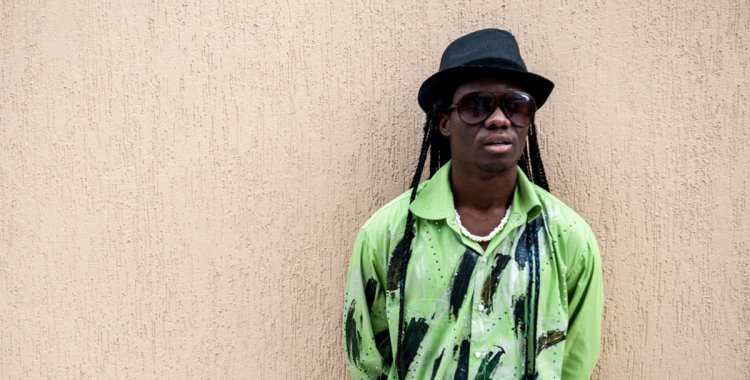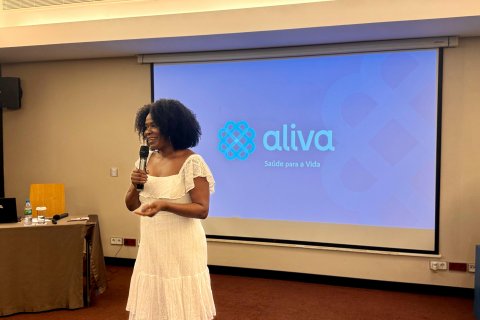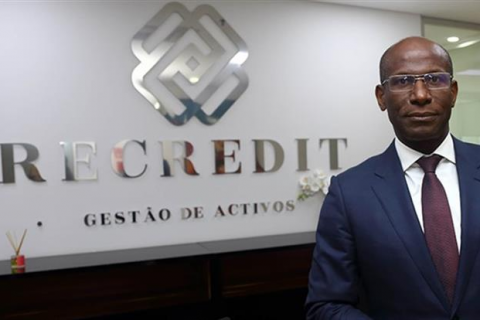Its history begins in Moxico. When his mother was pregnant, the father was called up to serve in the civil war and never returned home. "I was never able to meet him," he said, quoted by Piauí magazine.
Without a man present in the house and being the eldest son, Jacob had the job of helping the family. However, when he was only two years old, life nailed him to his first trip: he had measles and ended up losing his sight. "At that time, the entire economy of Angola was geared towards war. Health care did not exist. Children like me lost their sight or died every day because of measles," he said.
"As there was no help from the government, if a child went blind he became disabled, he didn't leave the house. But, to give my mother hope, I tried to lead a normal life. I played with other children, climbed trees, ran , jumped ", he says.
It was with his younger sister that he began to learn to write. When she started going to school, she started teaching Jacob about the things she learned herself. "I held a piece of coal and she guided my hand, teaching the design of each letter. My sister also read poems for me, and I memorized them all. That made them think I was smart," he reveals.
Always changing places due to the war, it was at the age of eight that he started to work. He went to the streets to sell sambapito and sweets to try to help with the household expenses. However, there were many salespeople: "When customers called" Sambapito ", traders had to run to the customer. He sold whoever arrived first. Being blind, he was always at a disadvantage."
At the age of ten, Jacob decides to move to the street. "I told my mother that she wanted to kill me, because she saw no meaning in life," he said.
He slept under the marquees of buildings and lived on drugs. Without any hope for the future, he became known in Moxico, because he was the only one to wander through those streets plagued by the terror of war. That is how his name reached the ears of the Government.
The Executive "proposed that I move to Brazil, to study through an agreement between the two countries". At just 11 years old, he was sent to Brazil and then his life started to take another direction.
"We were 24 Angolan children and adolescents, all blind, served by this same agreement", he revealed. According to Jacob, the children stayed at an educational institution for the visually impaired in Juiz de Fora, but were mistreated by the guardian.
The story became public and the Government decided to transfer the children to Curitiba.
It was there that he learned Braille and how to walk with a cane. The following year he went to school, having completed his education. He went to university, having joined a scholarship in the physical education course at UniBrasil.
"Between the end of 2014 and the beginning of 2015, with a year to go before I graduated, the Angolan government decided to take us back to our country. We wanted to finish graduation, so we could return in a better life condition, but they they put a lot of pressure on us. Uninter and the press supported us, and that's why we managed to stay. Even so, the government cut our stock market, "he said, revealing that difficult times were ahead.
After graduating, he couldn't find a job, so he decided to found a dance project for blind people, "Dançar Sem Ver". Without receiving any remuneration with the project, Jacob teaches voluntarily in spaces provided by dance academies, with the help of two volunteer teachers.
Along with the dance project, together with his friends, he is part of the Vozes de Angola choir. "We sang at Teatro Guaíra, even in Sala São Paulo. In 2005, President Lula heard about the group and invited us to go to Brasília, where we performed alongside the then Minister of Culture, Gilberto Gil. before the pandemic, on March 3, 2020, in the Santa Maria Chapel, which is in downtown Curitiba ", he says.
In 2018 he went to the Pontifical Catholic University of Paraná to see some friends and look for a job. In conversation with friends he talked about his ambition to enroll in a master's degree and become a teacher like his father. His story was heard by Mário Sanches, professor and founder of the graduate program in bioethics, who decided to help.
"I started taking some isolated subjects in this program and, shortly after, I was awarded a scholarship for immigrants", he said, adding that after so many obstacles he is about to become a master. The master's research is called "Inclusive education in the light of protective bioethics in Angola". "Some time ago, I realized that Angola is a signatory to a series of international treaties on inclusion that until today have not turned into anything, in practice. Angolans remain vulnerable, as they always have been," he says.
The ambition to make your country something better remains within you. After presenting his thesis in February or March, Jacob hopes to become a professor and one day return to Angola and found a university.
"One day I will return to Angola and found a university (...). As I like to say, those who see only with their eyes do not see much, in fact. I, who am blind, see with my soul and heart ", completed.







